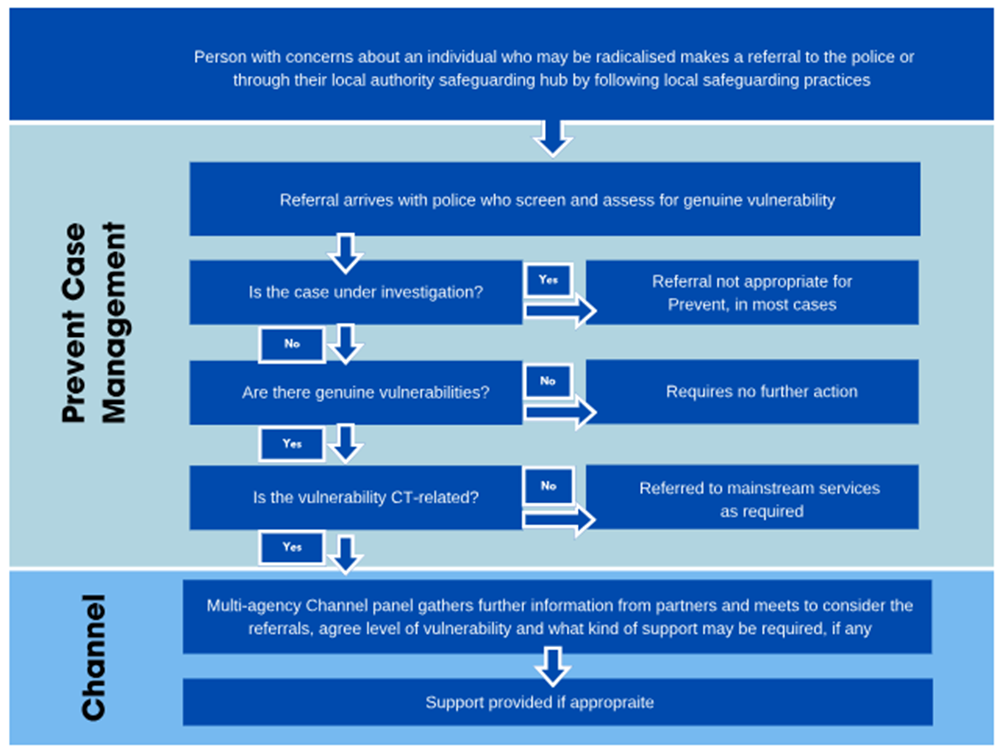Safeguarding
We have policies and procedures in place to deal effectively with child protection and safeguarding issues.
To promote a safe environment for students, we employ a strict selection and recruitment policy which includes all statutory checks on staff and regular volunteers including Enhanced DBS (Disclosure and Barring Service) checks.
All staff are trained to a level appropriate to their safeguarding responsibilities and the training is monitored and comprehensive records kept. Co-op Academy Manchester has a Designated Safeguarding Lead and safeguarding team who will provide support to staff members to carry out their safeguarding duties and who will liaise closely with other services such as children’s social care.
Report a concern
Are you worried that you or someone else is at risk of harm? Reach out for support now, we'll make sure you get the help you need.
Our safeguarding policy
You can find out more about our policy and procedures on our Policies page.
We also have a student-friendly version
Helplines and resources
YoungMinds
Supporting you and your mental health. Whether you want to understand more about how you’re feeling and find ways to feel better, or you want to support someone who’s struggling, we can help.
Kooth
Your online mental wellbeing community. Our community is here to support you through anything. Big or small.
Samaritans
Whatever you are going through, a Samaritan will face it with you. We’re here 24 hours a day, 365 days a year.
Call 116 123
Childline
You can contact Childline about anything. Whatever your worry, it’s better out than in. We’re here to support you. There are lots of different ways to speak to a Childline counsellor or get support from other young people.
Call 0800 1111
NSPCC
Everything we do protects children today and prevents abuse tomorrow, to transform society for every childhood. That’s why we’re here and that’s what drives all of our work.
The Mix
Essential support for under 25’s. We are here to help you take on any challenge you’re facing – from mental health to money, from homelessness to finding a job, from break-ups to drugs. Talk to us via our online community, on social, through our free, confidential helpline or our counselling service.
Call 0808 808 4994
Papyrus
Are you, or is a young person you know, not coping with life? For confidential suicide prevention advice contact HOPELINEUK. We are open 9am–midnight every day. Our suicide prevention helpline, HOPELINEUK, is a free, confidential, non-judgmental space to talk openly about your thoughts of suicide with our trained advisors.
Call 0800 068 41 41
Online safety resources
CEOP is a law enforcement agency and is here to keep children and young people safe.
If someone online has acted inappropriately towards you, your child or young person you know, please use the CEOP button to report it.
CEOP Education (Think U Know) provides a range of advice and activities for parents/carers and children.
Common Sense Media lets you search for movies, apps, games and websites and see their official age rating as well a recommended age from other parents.
NSPCC Keeping Children Safe Online provides a range of advice and activities for parents/carers and children.
Prevent Statement
The Prevent lead is Amanda Ram.
This Statement is to be read in conjunction with: The Academy Safeguarding and Child Protection Policy, Prevent duty guidance: for England and Wales (accessible) - GOV.UK (www.gov.uk) and Keeping Children Safe in Education.
Introduction to the Prevent Strategy
Everyone who comes into contact with children, young people and their families has a role to play in safeguarding. Schools and colleges have a duty of care to their pupils and staff which includes safeguarding them from the risk of being drawn into terrorism - this includes not just violent extremism but also non-violent extremism, which can create an atmosphere conducive to terrorism and can popularise views which terrorists exploit. Schools and colleges should be safe spaces in which children and young people can understand and discuss sensitive topics, including terrorism and the extremist ideas that are part of the terrorist ideology and learn how to challenge these ideas.
The aim of Prevent is to stop people from becoming terrorists or supporting terrorism. Prevent also extends to supporting the rehabilitation and disengagement of those already involved in terrorism.
The objectives of Prevent are to:
- tackle the ideological causes of terrorism
- intervene early to support people susceptible to radicalisation
- enable people who have already engaged in terrorism to disengage and rehabilitate
Definitions – From Keeping Children Safe in Education
Extremism - is the vocal or active opposition to our fundamental values, including democracy, the rule of law, individual liberty and the mutual respect and tolerance of different faiths and beliefs. This also includes calling for the death of members of the armed forces.
Radicalisation - refers to the process by which a person comes to support terrorism and extremist ideologies associated with terrorist groups.
Terrorism - is an action that endangers or causes serious violence to a person/people; causes serious damage to property; or seriously interferes or disrupts an electronic system. The use or threat must be designed to influence the government or to intimidate the public and is made for the purpose of advancing a political, religious or ideological cause.
Preventing Radicalisation in School and College
Building resilience in our young people and the promotion of fundamental British values is at the heart of preventing radicalisation. We do this by providing a safe place in which children and young people can discuss issues, and we aim to give them the knowledge and confidence to challenge extremist beliefs and ideologies.
The Prevent duty, is carried out under the Counter-Terrorism and Security Act 2015, which legally requires us to take steps to prevent pupils from being drawn into terrorism. We take this duty seriously and carry out the main actions responsibly, namely: understanding risk, managing risk, sharing information, reducing permissive environments, monitoring and assurance.
If we assess a child as at risk, we will refer to the Channel Programme, which focuses on providing support at an early stage to people who are identified as being vulnerable to being drawn into terrorism.
We recognise that we play a vital role in keeping children and young people safe from harm, including from the risks of extremism and radicalisation, and in promoting the welfare of children in our care.
What we do if there is a concern
If we have a concern about a particular pupil we will follow the school’s normal safeguarding procedures, including discussing with the school’s designated safeguarding lead or member of staff with designated responsibility for Prevent, and where deemed necessary, with children’s social care.
We may also contact the local police force or dial 101 (the non-emergency number). They can talk to us in confidence about concerns and help us gain access to support and advice. In an emergency situation we will follow the recommended emergency procedures.

Making a referral to Prevent - GOV.UK (www.gov.uk)
